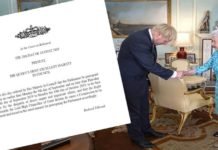Secretary of State for Exiting the European Union (Keir Starmer)
“Not good enough.
Here we go again: Brexit impact assessments, take two. For the past year, we have called on the Government to publish Brexit impact assessments. It is a simple argument: on decisions of this significance, Parliament is entitled to know the likely impact of the Government’s approach to Brexit and thus to hold the Government to account. The Government have repeatedly refused our requests.
Last year the Secretary of State initially insisted that these reports existed in “excruciating detail”, but were so sensitive that nobody else could see them. After this House passed a binding Humble Address, the Secretary of State changed tack, telling the Brexit Select Committee just last month that no “economic forecast of outcome” had ever existed. Yet last night we learn that an analysis has been produced after all.
This is now piling absurdity upon absurdity, and there are some pretty obvious questions. When was this new analysis commissioned? In particular, was it before or after the Secretary of State gave evidence to the Brexit Select Committee last month on this issue? Is this the only report that has been prepared on the Brexit scenarios? If not, what other analysis has been done? Does this new analysis model the Government’s Brexit approach? If not, why not? If so, will it lead to changes in Government policy? Finally, and most importantly, will the Secretary of State publish this now—not in nine months, but now, so that we can hold the Government properly to account?
We have been here before. It took a great deal of time last year and the use of a Humble Address to force the Government to release documents relating to Brexit. The Secretary of State has the chance today to avoid a repeat of that exercise if he commits to publishing this new analysis in full; will he do so?”
The Parliamentary Under-Secretary of State for Exiting the European Union (Mr Steve Baker)
“The right hon. and learned Gentleman and the Labour party are completely neglecting our duty to safeguard the national interest in the course of these negotiations. I can understand why he and those behind him would want the reports in the press to be accurate. Fundamentally, they do not wish to leave the European Union. For them, good news is a disaster and bad news is a welcome confirmation of their world view. They await each set of employment figures with eager anticipation, only to have their hopes dashed when every set shows an ever-increasing number of people in work. They gleefully celebrate warnings from banks about the possibility of jobs moving to the continent, then they have to retreat when, a few months later, the banks assert the supremacy of the City of London. I do not blame them. They care passionately about remaining in the European Union and they want to overturn the result, but their strategy is becoming clear: demoralisation, delay and revocation. However, that is not what our parties stood for at the last election. Our parties were clear that we would respect the result of the referendum, and that requires the Government to deliver the best possible Brexit. That is what we are trying to do.
As I said in the opening words of my reply, when the time comes for a meaningful vote, the Government will ensure that the House is appropriately informed. However, we can see what some of this economic analysis could be worth. Let us take as an example the respected Bank of England. What institution could be more respected for its analysis? In August 2016, it made a quantitative forecast of the impact of Brexit, saying that exports would go down by 0.5%, but they went up 8.3%. It said that business investment would go down by 2%, but it went up by 1.7%. It said that housing investment would go down by 4.75%, but it went up by 5%. It said that employment growth would be zero—flat—but it went up to a new all-time high. The public deserve to see the national interest protected in these negotiations and to have a House of Commons of representatives who exhibit a healthy scepticism about economic forecasting.”
This is a "Pay as You Feel" website Please help keep us Ad Free.
You can have access to all of our online work for free. However if you want to support what we do, you could make a small donation to help us keep writing. The choice is entirely yours.






















